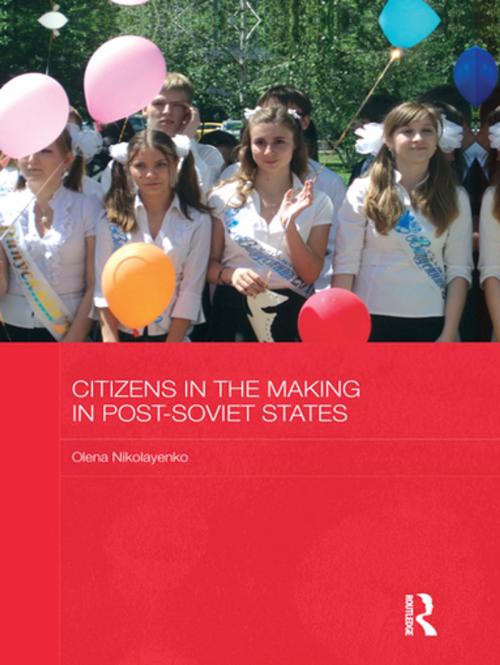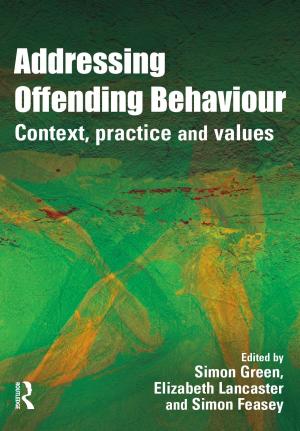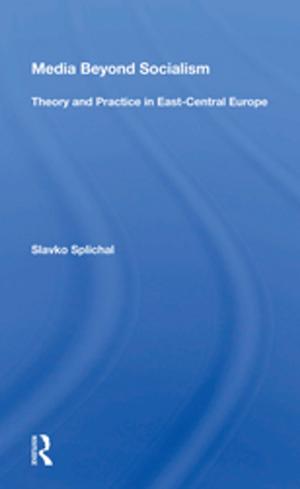Citizens in the Making in Post-Soviet States
Nonfiction, Social & Cultural Studies, Social Science, Cultural Studies, Ethnic Studies, Sociology, Political Science| Author: | Olena Nikolayenko | ISBN: | 9781136824531 |
| Publisher: | Taylor and Francis | Publication: | March 2, 2011 |
| Imprint: | Routledge | Language: | English |
| Author: | Olena Nikolayenko |
| ISBN: | 9781136824531 |
| Publisher: | Taylor and Francis |
| Publication: | March 2, 2011 |
| Imprint: | Routledge |
| Language: | English |
The political outlook of young people in the countries of the former Soviet Union is crucial to their countries’ future political development. This is particularly relevant now as the first generation without firsthand experience of communism at first hand is approaching adulthood. Based on extensive original research and including new survey research amongst young people, this book examines young people’s political outlook in countries of the former Soviet Union; it compares and contrasts Russia, where authoritarianism has begun to reassert itself, and Ukraine, which experienced a democratic breakthrough in the aftermath of the Orange Revolution.
The book examines questions such as: How supportive is this new generation of the new political order? What images of the Soviet Union prevail in the minds of young people? How much trust does youth place in current political and public institutions? Addressing these questions is crucial to understanding the extent to which the current regimes can survive on the wave of public support. The book argues that Russian adolescents tend to place more trust in the incumbent president and harbour more regrets about the disintegration of the Soviet Union than their peers in Ukraine; it demonstrates that young people distrust political parties and politicians, and that patriotic education shapes social and political values.
The political outlook of young people in the countries of the former Soviet Union is crucial to their countries’ future political development. This is particularly relevant now as the first generation without firsthand experience of communism at first hand is approaching adulthood. Based on extensive original research and including new survey research amongst young people, this book examines young people’s political outlook in countries of the former Soviet Union; it compares and contrasts Russia, where authoritarianism has begun to reassert itself, and Ukraine, which experienced a democratic breakthrough in the aftermath of the Orange Revolution.
The book examines questions such as: How supportive is this new generation of the new political order? What images of the Soviet Union prevail in the minds of young people? How much trust does youth place in current political and public institutions? Addressing these questions is crucial to understanding the extent to which the current regimes can survive on the wave of public support. The book argues that Russian adolescents tend to place more trust in the incumbent president and harbour more regrets about the disintegration of the Soviet Union than their peers in Ukraine; it demonstrates that young people distrust political parties and politicians, and that patriotic education shapes social and political values.















